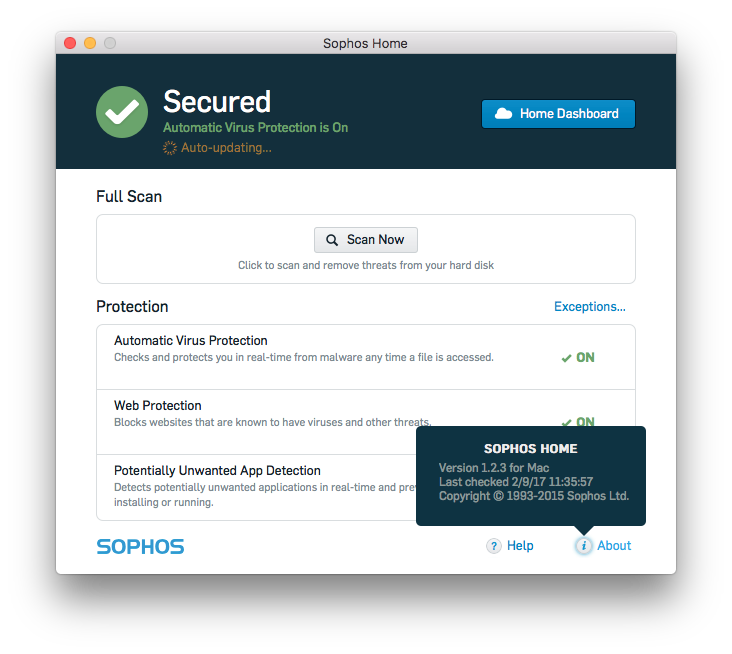

Neither of these threats spread very far in the Mac world.
Sophos antivirus mac review macworld install#
Currently the number of threats for OS X can be counted on one hand: there was Opener, a trojan script that when run would install itself in the user's startup folder and attempt to crack the users' passwords in the background (technically it could be considered a worm as it attempted to replicate over network shares using a security hole that existed in earlier versions of OS X), and more recently there was Leap-A, a self-propagating (if terribly broken) virus that when run would infect the user's applications and attempt to spread itself over instant messaging.
Sophos antivirus mac review macworld windows#
Sophos currently tracks 180,292 different viruses, malware, worms, trojans, and spyware written for the Windows platform. Is the Macintosh safer, and why?Ĭlearly, the Macintosh platform has orders of magnitude fewer threats to worry about. There are many possible answers to this question, but before we get to them, allow me to don my leather Felhide Cap (+8 Fire Resistance) and look at the statement itself. According to the report, "the continued dominance of Windows-based threats has prompted Sophos to suggest that many home users should consider switching to Apple Macs, to shield themselves from the malware onslaught."Īt first glance, it seems incredibly surprising that an antivirus company, one that makes the vast majority of its money selling Windows-based software, would suggest that people switch to another platform, particularly one where its products would no longer be necessary. Nevertheless, it was somewhat of an event when Sophos, the Abingdon, UK-based antivirus company, released a statement in their latest Security Report that urged people to switch to Apple Macintosh computers. Many of us own and use multiple platforms as a matter of course, and so we find it somewhat amusing whenever we hear stories involving arguments designed to convince people to "switch" from one platform to another.

At Ars Technica, we are fairly platform-neutral in nature.


 0 kommentar(er)
0 kommentar(er)
